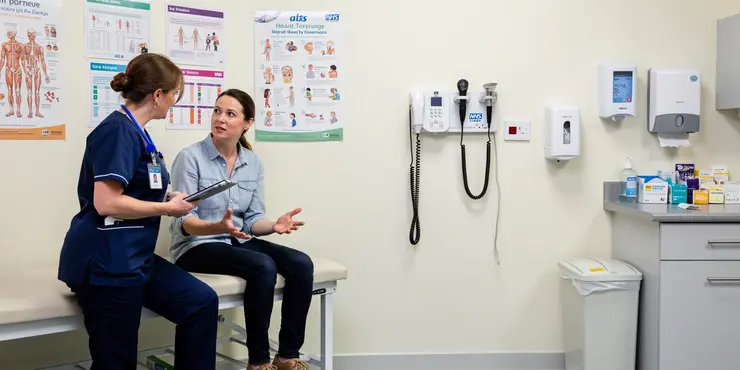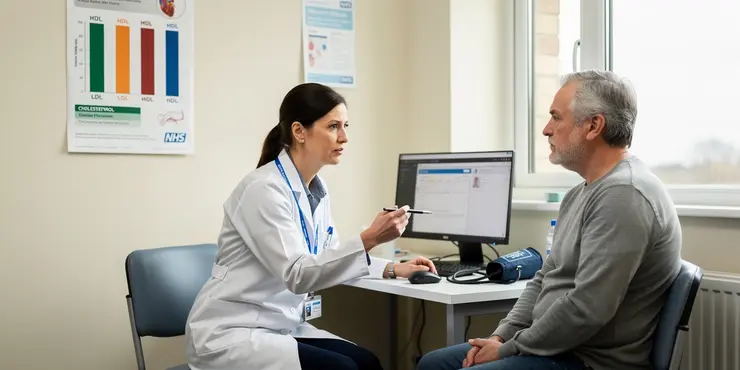
Find Help
More Items From Ergsy search
-

Are there risks associated with taking aspirin regularly?
Relevance: 100%
-

Can aspirin help in reducing the risk of strokes?
Relevance: 76%
-

Can I take Aspirin and Ibuprofen together?
Relevance: 76%
-

Should people with a family history of colorectal cancer take aspirin?
Relevance: 73%
-
How long do studies suggest taking aspirin for cancer prevention?
Relevance: 72%
-

How does aspirin work to reduce cancer risk?
Relevance: 68%
-

What is Aspirin?
Relevance: 68%
-

What dosage of aspirin is considered effective for cancer prevention?
Relevance: 63%
-

Can aspirin stop colorectal cancer?
Relevance: 62%
-

Is aspirin recommended for everyone to prevent colorectal cancer?
Relevance: 61%
-

What should I do if I'm considering aspirin for cancer prevention?
Relevance: 60%
-

Are Aspirin and Ibuprofen the same?
Relevance: 59%
-

Is Paracetamol the same as Aspirin?
Relevance: 59%
-

What are the side effects of Aspirin?
Relevance: 59%
-
Can aspirin interact with other medications?
Relevance: 58%
-
Should individuals with certain medical conditions avoid aspirin?
Relevance: 57%
-
Has the FDA approved aspirin for cancer prevention?
Relevance: 57%
-

What do health organizations say about aspirin and cancer prevention?
Relevance: 56%
-

Has aspirin been proven to cure colorectal cancer?
Relevance: 56%
-
Is aspirin effective in preventing other types of cancer?
Relevance: 56%
-

Which one is better for headaches: Aspirin or Paracetamol?
Relevance: 56%
-

What is the difference between Aspirin, Paracetamol, and Ibuprofen?
Relevance: 54%
-
What is the difference between aspirin, paracetamol, and ibuprofen?
Relevance: 54%
-
Is aspirin more effective for certain age groups in preventing colorectal cancer?
Relevance: 54%
-

Is it safe to use aspirin to treat chickenpox symptoms?
Relevance: 51%
-

What is Aspirin?
Relevance: 46%
-

What drugs can reduce the risk of heart-attack and strokes?
Relevance: 43%
-

Can aspirin prevent colorectal cancer?
Relevance: 42%
-

What are the benefits of regular mammograms?
Relevance: 40%
-
Are there ongoing studies about aspirin and colorectal cancer?
Relevance: 40%
-

What drugs are commonly prescribed to reduce the risk of heart attacks?
Relevance: 38%
-

When should one start taking medication for heart attack prevention?
Relevance: 37%
-

Should I change my passwords regularly?
Relevance: 36%
-
Are sugar substitutes healthier than regular sugar?
Relevance: 35%
-
Do over-the-counter medications help in preventing heart attacks and strokes?
Relevance: 34%
-

What settings should I regularly review for security?
Relevance: 33%
-

How does CFS differ from regular fatigue?
Relevance: 32%
-

Is there any risk of hypoglycemia with Mounjaro?
Relevance: 32%
-

Can you wear regular clothing with a stoma bag?
Relevance: 31%
-

How does regular caffeine consumption impact tolerance and blood pressure?
Relevance: 31%
Introduction
Aspirin is widely used in the UK and around the world for its pain relief, anti-inflammatory, and blood-thinning properties. While many people take aspirin regularly for various health benefits, it is essential to be aware of the potential risks associated with long-term use. Understanding these risks can help individuals make informed decisions about their health under the guidance of healthcare professionals.
Stomach Issues and Gastrointestinal Bleeding
One of the most significant risks associated with regular aspirin use is the potential for stomach issues and gastrointestinal bleeding. Aspirin can irritate the stomach lining, potentially leading to discomfort or more severe gastric conditions. In some cases, prolonged aspirin use can cause ulcers or bleeding in the stomach or intestines. This risk is higher for individuals with a history of gastric problems or those who consume alcohol regularly. It is crucial to consult with a healthcare provider if you experience any symptoms of gastrointestinal distress while taking aspirin.
Bleeding Risks
As a blood thinner, aspirin can reduce blood clotting, which is beneficial for preventing heart attacks and strokes in some individuals. However, this anticoagulant effect also increases the risk of bleeding. In addition to gastrointestinal bleeding, regular aspirin use can lead to increased bleeding during surgery or after an injury. Individuals who are prone to bleeding disorders or are taking other blood-thinning medications should exercise caution and seek medical advice before using aspirin regularly.
Allergic Reactions and Asthma
Some individuals may experience allergic reactions to aspirin. Symptoms can range from mild, such as hives or itching, to severe, including swelling and difficulty breathing. Aspirin can also exacerbate asthma symptoms in a subset of patients. Those with asthma who have experienced adverse reactions to aspirin in the past should avoid its use and seek alternatives for pain management or other therapeutic needs.
Reye's Syndrome in Children
While aspirin is generally considered safe for adults, it poses a significant risk for children and teenagers recovering from viral infections. Reye's Syndrome, a rare but potentially fatal condition, has been linked to aspirin use in young patients. This syndrome can cause swelling in the liver and brain, leading to severe complications. As a result, healthcare providers typically advise against aspirin use in children and adolescents with viral illnesses.
Conclusion
Regular aspirin use can offer benefits, particularly for those at risk of cardiovascular events. However, these potential benefits must be weighed against the risks, including gastrointestinal issues, bleeding, allergic reactions, and in children, the risk of Reye's Syndrome. It is crucial for individuals to consult with healthcare professionals to determine if aspirin is appropriate for their specific health conditions and to discuss any concerns regarding its regular use.
Introduction
Aspirin is a common medicine used in the UK and worldwide. It helps with pain, swelling, and keeping blood from clotting too much. Many people take aspirin for health reasons, but it is important to know it can have risks if taken for a long time. Knowing these risks helps people make better health choices with their doctors.
Stomach Issues and Gastrointestinal Bleeding
Taking aspirin regularly can hurt your stomach. It can cause stomach pain or bleeding in the stomach and intestines. This is more likely if you have had stomach problems before or if you drink alcohol often. If you feel stomach pain or see blood when using aspirin, talk to your doctor.
Bleeding Risks
Aspirin thins the blood, which helps some people avoid heart attacks and strokes. But it can also cause more bleeding. It can make you bleed more if you get hurt or if you have surgery. If you bleed easily or take other medicines that thin the blood, talk to your doctor before using aspirin.
Allergic Reactions and Asthma
Some people are allergic to aspirin. This can cause hives, itching, swelling, or trouble breathing. Also, people who have asthma might have worse symptoms if they take aspirin. If you have asthma and react badly to aspirin, look for other medicines with your doctor's help.
Reye's Syndrome in Children
Aspirin can be dangerous for kids and teenagers who are sick with a virus. It can cause Reye's Syndrome, a serious illness that affects the liver and brain. Doctors say that children and teenagers should not take aspirin if they have viral infections.
Conclusion
Aspirin can help some people, especially those at risk of heart problems. But it can also cause stomach issues, bleeding, allergies, and Reye's Syndrome in children. Always talk to your doctor to see if aspirin is safe for you and ask questions if you are worried about using it regularly.
Frequently Asked Questions
Useful Links
This website offers general information and is not a substitute for professional advice.
Always seek guidance from qualified professionals.
If you have any medical concerns or need urgent help, contact a healthcare professional or emergency services immediately.
Some of this content was generated with AI assistance. We’ve done our best to keep it accurate, helpful, and human-friendly.
- Ergsy carfully checks the information in the videos we provide here.
- Videos shown by Youtube after a video has completed, have NOT been reviewed by ERGSY.
- To view, click the arrow in centre of video.
- Most of the videos you find here will have subtitles and/or closed captions available.
- You may need to turn these on, and choose your preferred language.
- Go to the video you'd like to watch.
- If closed captions (CC) are available, settings will be visible on the bottom right of the video player.
- To turn on Captions, click settings .
- To turn off Captions, click settings again.
More Items From Ergsy search
-

Are there risks associated with taking aspirin regularly?
Relevance: 100%
-

Can aspirin help in reducing the risk of strokes?
Relevance: 76%
-

Can I take Aspirin and Ibuprofen together?
Relevance: 76%
-

Should people with a family history of colorectal cancer take aspirin?
Relevance: 73%
-
How long do studies suggest taking aspirin for cancer prevention?
Relevance: 72%
-

How does aspirin work to reduce cancer risk?
Relevance: 68%
-

What is Aspirin?
Relevance: 68%
-

What dosage of aspirin is considered effective for cancer prevention?
Relevance: 63%
-

Can aspirin stop colorectal cancer?
Relevance: 62%
-

Is aspirin recommended for everyone to prevent colorectal cancer?
Relevance: 61%
-

What should I do if I'm considering aspirin for cancer prevention?
Relevance: 60%
-

Are Aspirin and Ibuprofen the same?
Relevance: 59%
-

Is Paracetamol the same as Aspirin?
Relevance: 59%
-

What are the side effects of Aspirin?
Relevance: 59%
-
Can aspirin interact with other medications?
Relevance: 58%
-
Should individuals with certain medical conditions avoid aspirin?
Relevance: 57%
-
Has the FDA approved aspirin for cancer prevention?
Relevance: 57%
-

What do health organizations say about aspirin and cancer prevention?
Relevance: 56%
-

Has aspirin been proven to cure colorectal cancer?
Relevance: 56%
-
Is aspirin effective in preventing other types of cancer?
Relevance: 56%
-

Which one is better for headaches: Aspirin or Paracetamol?
Relevance: 56%
-

What is the difference between Aspirin, Paracetamol, and Ibuprofen?
Relevance: 54%
-
What is the difference between aspirin, paracetamol, and ibuprofen?
Relevance: 54%
-
Is aspirin more effective for certain age groups in preventing colorectal cancer?
Relevance: 54%
-

Is it safe to use aspirin to treat chickenpox symptoms?
Relevance: 51%
-

What is Aspirin?
Relevance: 46%
-

What drugs can reduce the risk of heart-attack and strokes?
Relevance: 43%
-

Can aspirin prevent colorectal cancer?
Relevance: 42%
-

What are the benefits of regular mammograms?
Relevance: 40%
-
Are there ongoing studies about aspirin and colorectal cancer?
Relevance: 40%
-

What drugs are commonly prescribed to reduce the risk of heart attacks?
Relevance: 38%
-

When should one start taking medication for heart attack prevention?
Relevance: 37%
-

Should I change my passwords regularly?
Relevance: 36%
-
Are sugar substitutes healthier than regular sugar?
Relevance: 35%
-
Do over-the-counter medications help in preventing heart attacks and strokes?
Relevance: 34%
-

What settings should I regularly review for security?
Relevance: 33%
-

How does CFS differ from regular fatigue?
Relevance: 32%
-

Is there any risk of hypoglycemia with Mounjaro?
Relevance: 32%
-

Can you wear regular clothing with a stoma bag?
Relevance: 31%
-

How does regular caffeine consumption impact tolerance and blood pressure?
Relevance: 31%


